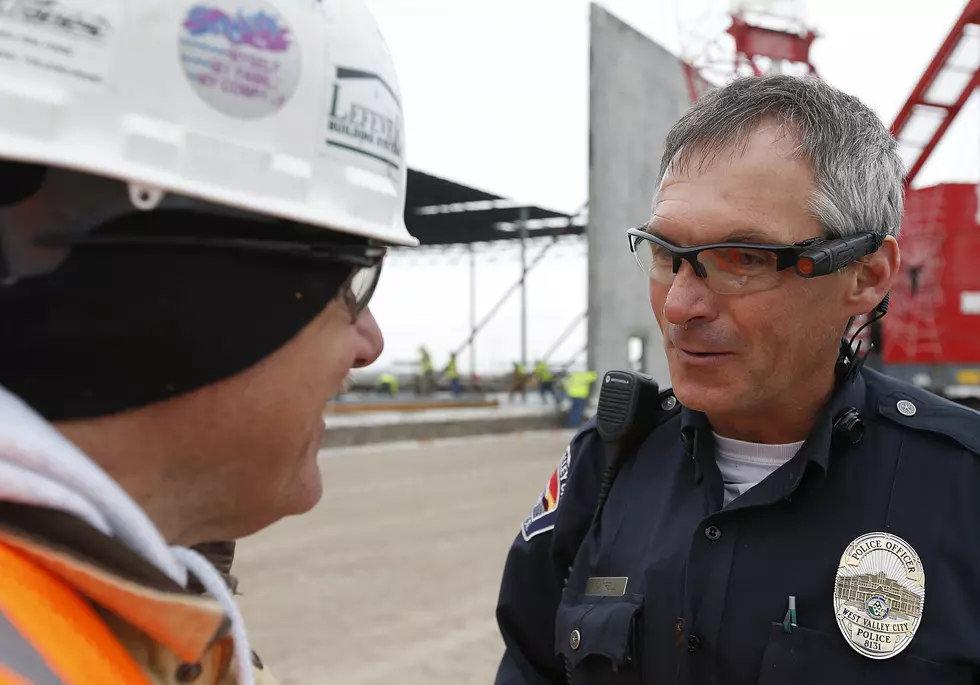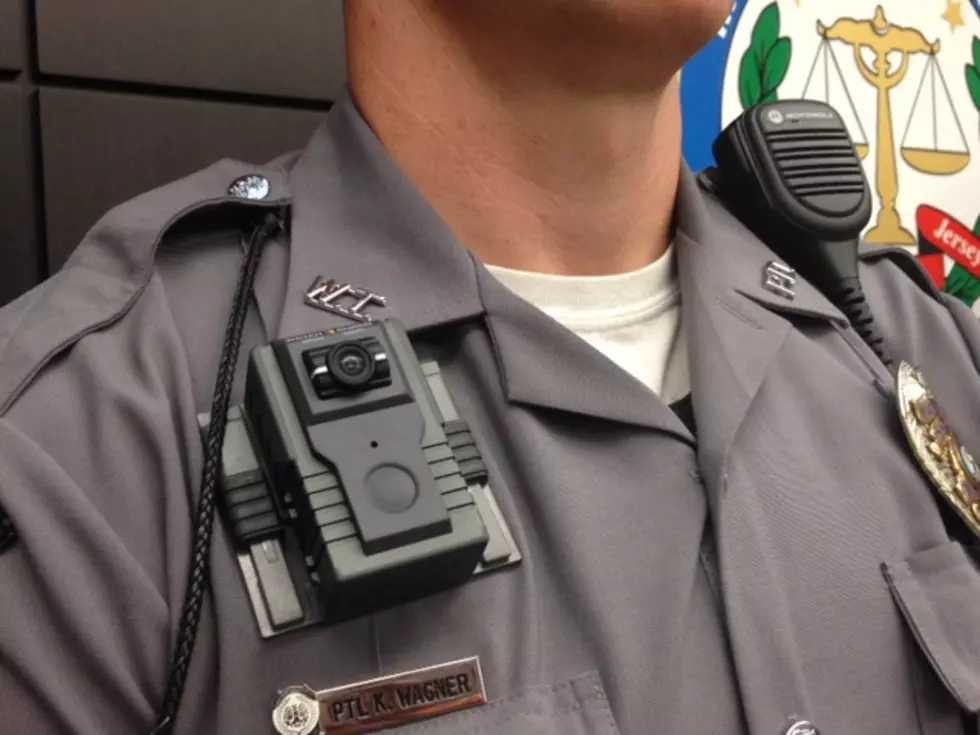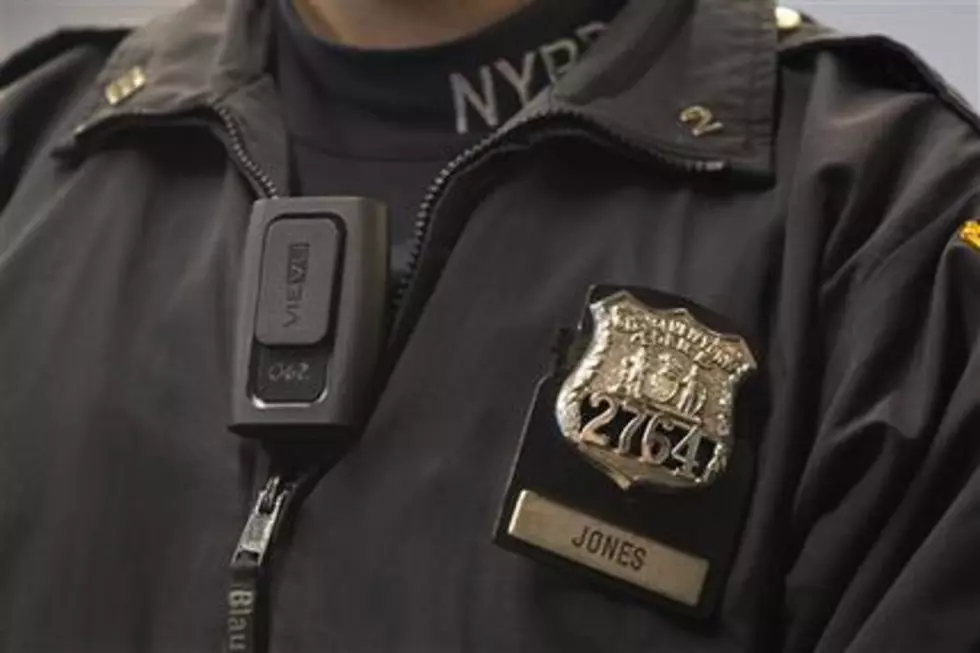
Some South Jersey police departments pass on body cameras over policy
A state policy to promote use of body cameras by police may be deterring some South Jersey departments from using the technology.
Some police agencies said they are passing on body cameras, and the funding to help purchase them, because the state Attorney General's Office policy released last year is too vague.
There are too many questions on where and when the cameras may be used, privacy concerns of third parties captured on video and how that footage will be treated under public-records guidelines, some said.
"Who really wants to be the test case with this?" asked Barnegat Township police Lt. Keith Germain, whose department is not using the cameras.
The questions on the relatively new technology come as more departments in New Jersey and the U.S. consider rolling out body cameras in an effort to provide an independent point of view to police encounters.
Stafford Township police Capt. Thomas Dellane told The Press of Atlantic City that when the policy was unveiled in July, the department immediately had concerns.
The 24-page policy includes 12 scenarios in which a body camera must be activated by officers. They include assisting a motorist or making a property check, interviewing a witness during the investigation of a criminal offense, making an arrest and during a search -- consensual or otherwise.
But Dellane said the camera activation instructions are too all-encompassing, and privacy questions haven't been addressed in connection to where and when the cameras are to be turned on.
"So when an officer responds to a call for service and activates the body camera, the officer could be recording people who have nothing to do with the call for service. This brings up privacy issues," he said.
Just 50 of the 500 police agencies across the state have deployed body cameras since $2.5 million in funding was awarded and a state policy was enacted last year.
The total number of departments that have or are getting cameras after receiving grant funding is 208. In 2012, the Cape May County Sheriff's Office was the first agency in South Jersey to use body cameras in their jails.
Peter Aseltine, spokesman for the state Attorney General's Office, said he is unaware of particular concerns raised by law-enforcement agencies regarding the current policy.
The state policy was developed in about six months, and the state sought and received extensive input from stakeholders, including law-enforcement leaders, civil rights organizations and community advocates, Aseltine said.
The policy is subject to revision, he said.
Germain said body-camera technology provides an opportunity for transparency and a glimpse into the everyday interactions between police and the public.
"These cameras have the ability to protect police officers and also the public through video recordings," he said.
Cape May County Undersheriff Robert Nolan said the Sheriff's Office received a complaint from an individual alleging a window was left open at a home after officers arrived to serve a warrant and the residents were not there. When officers arrived at the home, they turned on their body cameras, Nolan said.
"We were able to see as the officers are walking up the walkway to the house, we could see the curtain blowing out of the open window. We learned the window was already open when they arrived," he said.
When the policy was created, the state analyzed policies used by towns in New Jersey and other states and studied materials from the Police Executive Research Forum.
Aseltine said the state's directive calls for the formation of a Body Worn Camera Advisory Group to continue to meet with community members and law-enforcement representatives to evaluate the policy and assess the need for revisions.
In December, acting Attorney General John Hoffman said New Jersey is leading the nation in efforts to deploy body cameras to promote transparency and mutual accountability of police and civilians.
The cameras can be worn on an officer's chest, hat or shoulder, and are always recording video in a loop. That video is recorded over until the officer pushes a button on the device that starts the recording and saving of audio and video footage. Police said the average loop time for body camera footage is between 30 and 90 minutes During an officer's shift, Dellane said.
The New Jersey State League of Municipalities supports the use of police cameras but has concerns about the state's policy, said Edward Purcell, an attorney for the league.
Purcell said the most common issues that arise are in relation to the Open Public Records Act and the privacy of the recordings.
There is tension in the policy, since OPRA requires access to government records, but some of the police-camera recordings can be sensitive, Purcell said.
"Any of these concerns is not a way to take a dig at body cameras. They are legitimate concerns. We are watching the policy's implementation to see how it's working and to see what happens," Purcell said.
Purcell said the state attorney general's directive was an attempt to provide order and structure in dealing with the video recordings. He said the cataloging of the video data is the most expensive part of the process.
"This directive is the first step on how using this technology will operate, and I don't think it's going to be the last step," he said.
Right now, it's a period of wait-and-see as some departments deploy the technology on the street, Purcell said.
(Copyright 2016 The Associated Press. All rights reserved. This material may not be published, broadcast, rewritten or redistributed.)
More From New Jersey 101.5 FM









